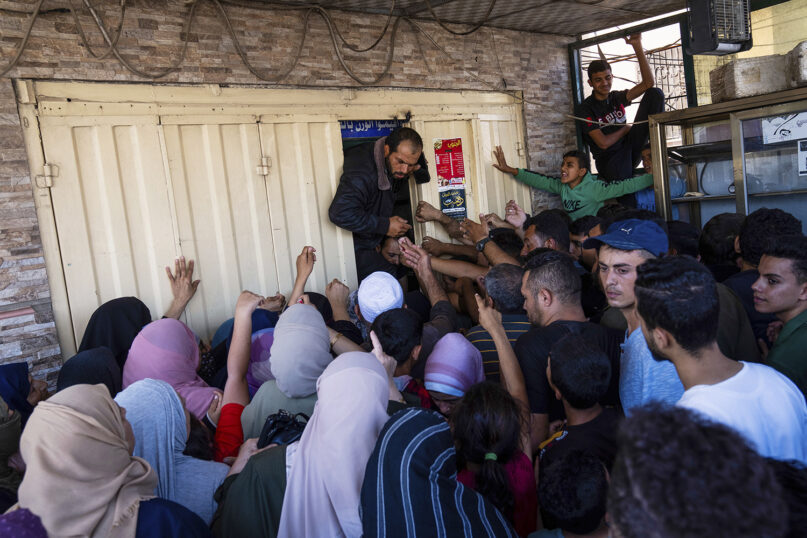(RNS) — As both a faith leader and someone with a long-standing commitment to journalism about faith and faith-related issues, I find myself wrestling with how events related to the war in Israel and Gaza are reported.
How we respond to a war that has seen more than 6,000 dead, some 200 hostages taken, their fates still unknown, and millions of Israelis and Gazans living in fear, says as much about us as it does about people and causes in the Mideast. There is no escaping the fact that when any of us writes about any charged issue, especially about war, our words reflect our concerns as much as the facts and issues we report.
I am watching a war that was unleashed as the next chapter of Hamas’ publicly announced mission to wipe Israel off the map and take as many Jews with it as possible. But I also appreciate that this war is not only about the existence of Israel, or the future of Palestinian national aspirations.
What’s at stake for me, and all of us, is how to make sure our thinking about the war is both compassionate and moral, and this question is before each and every one of us, regardless of politics, geography, faith or nationality. It means asking: How will we guard against sacrificing our compassion in the name of defending morality? How will we guard against allowing dangerous moral relativism to fuel our well-intentioned compassion?
One test of compassion is how to mourn the death of innocents, regardless of which side those innocents happen to be on. However one understands what their elders may have done, or what we assume about what most of “them” believe, the death of noncombatants is a tragedy, full stop. And even when such deaths are an inevitable part of war we deem necessary and just, they remain a tragedy to which we can never inure ourselves.
But compassion for innocents who have died should not cloud our moral judgment and project equal innocence onto all people impacted by the war. This war began with the purposeful, wholesale slaughter of people simply because they were Jewish, or simply because they were in Israel, even if they were not Jewish.

Ultra-Orthodox Jewish men inspect a damaged road after it was hit by a rocket fired from the Gaza Strip, in the West Bank Jewish settlement of Beitar Illit, Oct. 9, 2023. (AP Photo/Maya Alleruzzo)
Some commentators, including faith leaders speaking for their organizations or denominations, have advocated peace without condemning Hamas’ intransigence or its aggression. And even many of those who have condemned the initial slaughter of civilians continue to couch their responses in the language of equivalence.
I’m not suggesting anyone should give up advocating for Palestinians. But those who support or justify the attack that initiated the current conflict need to overcome dangerous moral relativism that is at the foundation of their views. The two sides’ actions are simply not morally equal. Simply asserting that there is a moral equivalence won’t stop the violence or bring lasting peace. Fights fueled by false moral equivalence have never ended well.
And for those of us who already know all too well that the two sides of this conflict are not morally equal, we must continually challenge ourselves to remain compassionate — to make the distinction, both in thought and in practice, between the terrorist cause against which we fight and the individual people who suffer as a result of that fight. That is why, to share an extreme example, there are Hamas terrorists being treated in Israeli hospitals, sometimes just down the hall from those they tried to murder.
May we all find the faith, the wisdom and the strength to be both genuinely compassionate and morally resolute in a world that often invites us to choose between the two.
(Rabbi Brad Hirschfield is president of the National Jewish Center for Learning and Leadership, known as CLAL. The views expressed in this commentary do not necessarily represent those of Religion News Service.)





